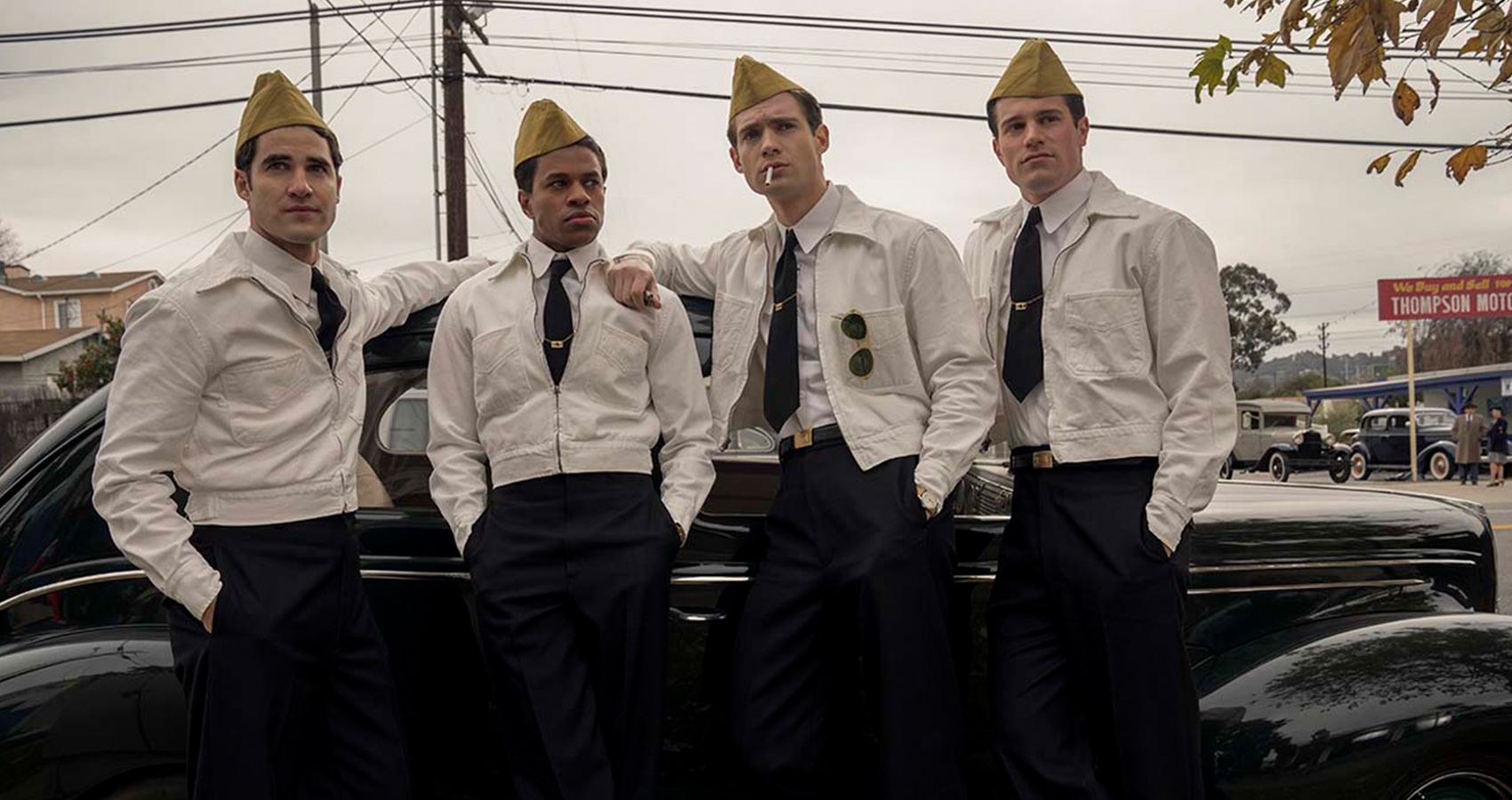On May 1, Netflix released Ryan Murphy's latest series, Hollywood. The series reimagines Hollywood's Golden Age as a much more progressive and hopeful era, incorporating fictionalized versions of real stars with characters of Murphy's creation.
Back in 2018, Murphy signed a five-year, $300 million contract with Netflix. Since then, he has been producing and creating documentaries and shows for the network that give attention to stories that might not get made otherwise. Over the years, Murphy has become known for his role in bringing diverse stories to the forefront of television, such as Glee, Pose, and recently Netflix's The Politician. With the release of Hollywood, he not only keeps to that same trend, but also envisions a world where diversity in Hollywood came much earlier than it did in reality.
Early critical response for Hollywood chastizes Murphy's rose-colored view of old Hollywood. While his reimagining is no doubt a more hopeful and progressive Hollywood, it also takes the time to shine a light on the true stories of injustice of the time. The contrast of the true stories verses the fictionalized ones serve to highlight the ways in which the entertainment industry has failed over the years, and how, even today, it could be doing a lot better.
A New Look At Old Hollywood
Early on in the series the character of Archie Coleman, played by Jeremy Pope, seems to summarize the heart of Hollywood saying, "I wanna take the story of Hollywood and give it a rewrite." Lately, this theme has been a popular one. Similar to Quentin Tarantino's Once Upon a Time in Hollywood, Murphy rewrites a portion of Hollywood's history for the better. Using a mixture of made-up characters and fictionalized versions of real people, Murphy shines a light on the realities of Hollywood's Golden Age for those that were non-white and queer.
Throughout the series, we are introduced to Hattie McDaniel, Rock Hudson, and Anna May Wong, among others, who were real stars in old Hollywood. However, despite their celebrity, in real life they never got the true respect or acclaim they deserved. McDaniel and Wong, in particular, were the subject of racism and typecasting in Hollywood. While Hudson did receive a significant amount of fame, his career was plagued by reporters who threatened to out him as a gay man, and he was forced to marry in order to hide the truth of his sexuality. In Murphy's story, however, the fictionalized versions of these celebrities get justice and find happiness.
It is no secret that the history of Hollywood is ripe with racism, homophobia, and sexism. Like many reimaginings, Murphy's Hollywood relies heavily on a group of people and events coming together at the right time. Set to the backdrop of the real-life tragedy of Peg Entwistle, the series brings people of color, women, and queer individuals together to create an idealistic old Hollywood. Realistic or not, Murphy intertwines fiction and reality, discouragement and hope, in a way that gives viewers a look into a shameful past while also revealing the very real power of representation.
The Impact Of Representation
What lies beneath the overtones of a progressive and fake version of Hollywood is the real message worth absorbing. At the end of the fourth episode of the series, a fictionalized version of Eleanor Roosevelt, played by Harriet Sansom Harris, speaks on the power of representation in the entertainment industry. Talking with the studio executives who are on the cusp of casting the first-ever woman of color in a lead role, Roosevelt says, "I used to believe that good government could change the world [but] I don't know that I believe that anymore...what you do, the three of you, can change the world". This is an ambitious statement but not necessarily a false one. The power of representation perhaps has been too underrated in Hollywood, but had that not been the case, the world today might be a different place.
One of the clearest messages on representation happens in the finale. As the fictionalized 1948 Oscar's is taking place, wherein Hollywood's version a number of diverse individuals win awards, Murphy intertwines scenes from living rooms around America. The viewer watches as people of color across America celebrate the wins of non-white individuals. This powerful moment is bittersweet. While joy emanates from the screen, it is not hard for those watching Hollywood to remember the real story. To know that, while this version is wonderful, it is not real.
By the end of the series, the studio at the center of Hollywood begins to make even more progress. Murphy creates an atmosphere of possibility and optimism, something that, while fictional, opens up a discussion about what more can be done in this day and age. Hopefully, viewers will come away moved by the series, but also desirous of more change and more diversity.
The entire season of Hollywood is now streaming on Netflix.

